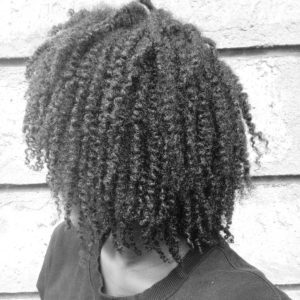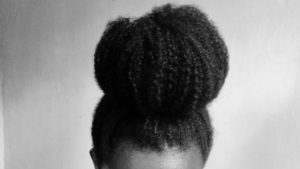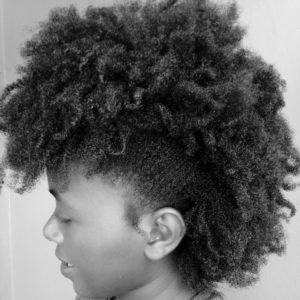Natural hair, particularly 4C hair, is known for its beautiful, unique texture. However, many people with 4C hair face issues like hair loss and thinning, which can be frustrating and concerning. If you’re experiencing hair loss or thinning, it’s important to understand the root causes so you can address them effectively. Hair loss is not just about external factors; it can also be tied to genetics, lifestyle, hair care practices, and health conditions.
In this detailed blog post, we’ll explore the major causes of hair loss and thinning in 4C natural hair and offer practical solutions to help you maintain healthy, thriving hair.
Feel like your hair has been the same length forever, I’ve an Ebook that will help you grow your hair healthier, longer and thicker. Grab your copy here… Also, check out all the Ebooks,guides and journals that will go a long way in your hair care journey here.
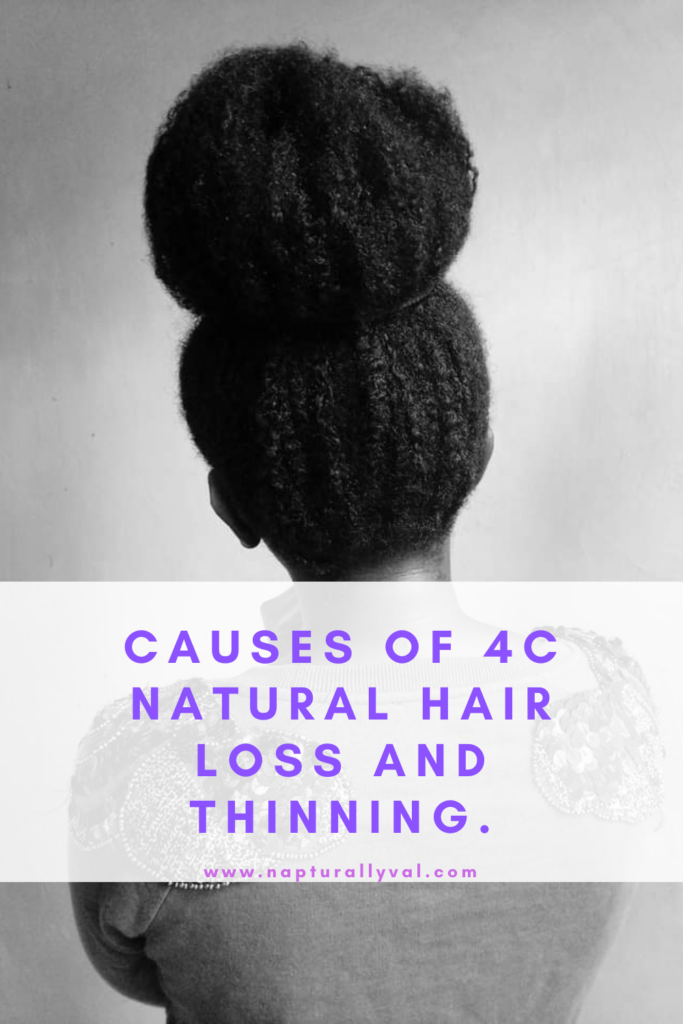
Table of Contents
1o Major Causes of 4C Hair Loss & Thinning
1. Tight Protective Styles and Tension
Protective styles like braids, twists, and weaves are fantastic for reducing manipulation and protecting your 4C hair. However, one of the leading causes of hair loss in 4C natural hair is tension from excessively tight hairstyles. Constant pulling on the scalp from tight braids, weaves, or ponytails can lead to traction alopecia—a form of hair loss caused by tension on the hair follicles.
Solution:
- Opt for Looser Styles: Choose styles that don’t put unnecessary tension on your hair and scalp. Looser braids, twists, and buns are better for your hairline.
- Alternate Between Protective Styles: Give your hair a break between protective styles to allow your scalp and hairline to recover.
- Use Satin or Silk Scarves: If you wear your hair in a protective style, using satin or silk scarves can reduce friction and help prevent further breakage or thinning.
2. Excessive Heat Styling
Heat damage is another major cause of hair loss and thinning, especially for 4C hair. Using heat tools like flat irons, curling irons, or blow dryers on high heat can cause breakage, weaken the hair shaft, and lead to thinning over time.
4C hair is delicate and prone to dryness, making it more vulnerable to damage when exposed to high heat without adequate protection. Over time, this can lead to excessive shedding and hair loss.
Solution:
- Limit Heat Usage: Try to limit the use of heat styling tools. If you must use heat, ensure it’s set to a low or medium temperature.
- Always Use Heat Protectant: Before applying heat, always use a heat protectant to minimize damage and create a barrier between your hair and the heat source.
- Embrace Heat-Free Styles: Explore heat-free styling techniques like stretching with twists or braids, or using rollers to achieve curls and waves without heat.

3. Poor Diet and Nutritional Deficiencies
Your hair health is closely linked to your diet. If you’re not getting enough nutrients, it can result in hair loss or thinning. Deficiencies in iron, vitamin D, zinc, and biotin are particularly linked to hair thinning and hair loss. Additionally, a lack of protein, which is essential for hair structure, can lead to weak, brittle hair.
Solution:
- Eat a Balanced Diet: Ensure your diet includes a variety of nutrients, especially those that promote hair growth, like lean proteins, fruits, vegetables, and healthy fats (such as omega-3 fatty acids).
- Consider Supplements: If your diet lacks certain nutrients, consider taking supplements like biotin, iron, and vitamin D, but always consult a healthcare professional before starting any supplement regimen.
- Stay Hydrated: Drinking enough water is essential for overall health, including your hair. Hydration helps maintain moisture in your hair and scalp, reducing dryness and breakage.
4. Over-Manipulation of Hair
Handling your 4C hair too much, whether through frequent combing, styling, or brushing, can lead to breakage and thinning. Over-manipulation causes wear and tear on the hair, particularly on the fragile ends. This leads to breakage and, over time, thinning hair.
Solution:
- Limit Hair Manipulation: Reduce the number of times you style or manipulate your hair throughout the week. Stick to low-manipulation styles that don’t require daily touch-ups.
- Use the Right Detangling Tools: Always detangle with a wide-tooth comb or your fingers, and use a detangling spray or conditioner to make the process smoother and less damaging.
- Moisturize Regularly: Keeping your hair moisturized helps it withstand manipulation better, reducing breakage.
5. Harsh Hair Care Products
Using hair care products that contain harsh chemicals, sulfates, or alcohol can strip your hair of its natural oils, leading to excessive dryness and breakage. 4C hair, in particular, requires products that are moisturizing and free from drying agents.
Solution:
- Choose Moisturizing, Sulfate-Free Products: Opt for products that are designed for natural hair, particularly those that are sulfate-free, as sulfates strip the hair of its natural oils.
- Look for Nourishing Ingredients: Focus on products that contain hydrating and nourishing ingredients like shea butter, coconut oil, aloe vera, and glycerin. These ingredients help to maintain moisture and strengthen the hair.
- Avoid Alcohol-Based Products: Check the labels of your styling products for alcohol, which can dry out your hair.
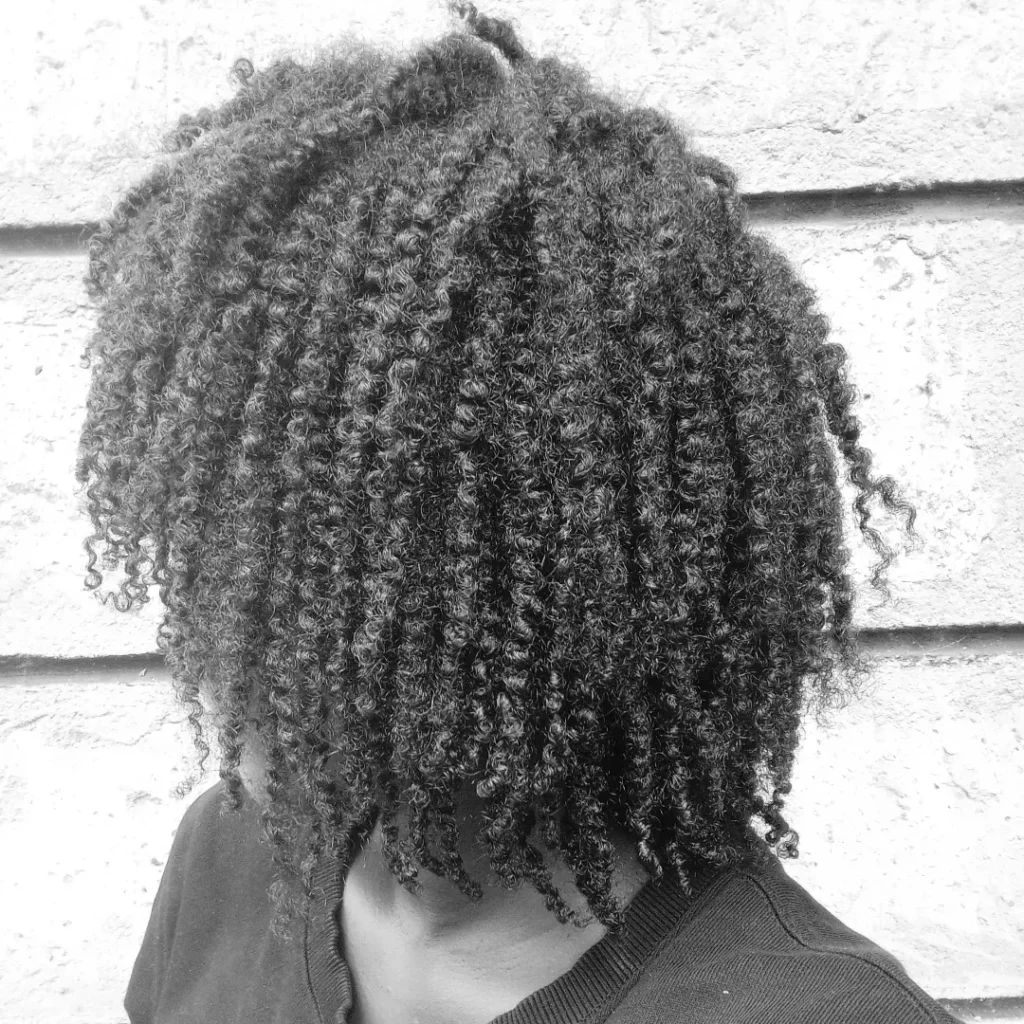
6. Lack of Moisture
Moisture is critical for the health and strength of 4C hair. When your hair lacks moisture, it becomes brittle, which leads to breakage and eventually thinning. Dry hair is more prone to tangles and knots, which can cause damage during detangling.
Solution:
- Follow a Consistent Moisture Routine: Use the LOC or LCO method (Liquid, Oil, Cream) to ensure your hair stays moisturized for longer periods. Start with a water-based leave-in conditioner, followed by an oil to lock in moisture, and finish with a cream or butter for added protection.
- Deep Condition Regularly: Deep condition your hair at least once every two weeks to help replenish lost moisture and strengthen your strands.
- Use a Moisturizing Spray Between Washes: To keep your hair moisturized between wash days, use a DIY moisturizing spray made from water, a bit of leave-in conditioner, and a few drops of oil.
7. Scalp Conditions
Sometimes, hair loss and thinning are due to underlying scalp issues. Conditions like seborrheic dermatitis, psoriasis, or dandruff can weaken hair follicles, making it harder for hair to grow and leading to thinning.
Solution:
- Consult a Dermatologist: If you suspect a scalp condition is contributing to your hair loss, it’s best to consult a dermatologist or trichologist who can provide you with the right treatment.
- Use Scalp-Friendly Products: Avoid products that irritate your scalp. Instead, opt for those designed to soothe and nourish your scalp, such as those containing tea tree oil or peppermint oil.
- Maintain a Clean Scalp: A clean scalp is essential for healthy hair growth. Shampoo your hair regularly to remove dirt, product buildup, and excess oils that can clog your hair follicles.
8. Hormonal Changes
Hormonal imbalances, whether due to pregnancy, childbirth, menopause, or thyroid issues, can lead to significant hair loss and thinning. When hormones are out of balance, hair may enter a prolonged resting phase, leading to hair thinning and shedding.
Solution:
- Visit a Doctor: If you’re experiencing sudden or severe hair loss, it’s essential to see a healthcare provider. They can perform tests to check for hormonal imbalances and provide treatment options, such as hormone therapy or medications.
- Focus on Hair Health During Hormonal Shifts: Maintain your moisture routine, avoid excessive heat styling, and minimize manipulation to keep your hair as healthy as possible during hormonal changes.
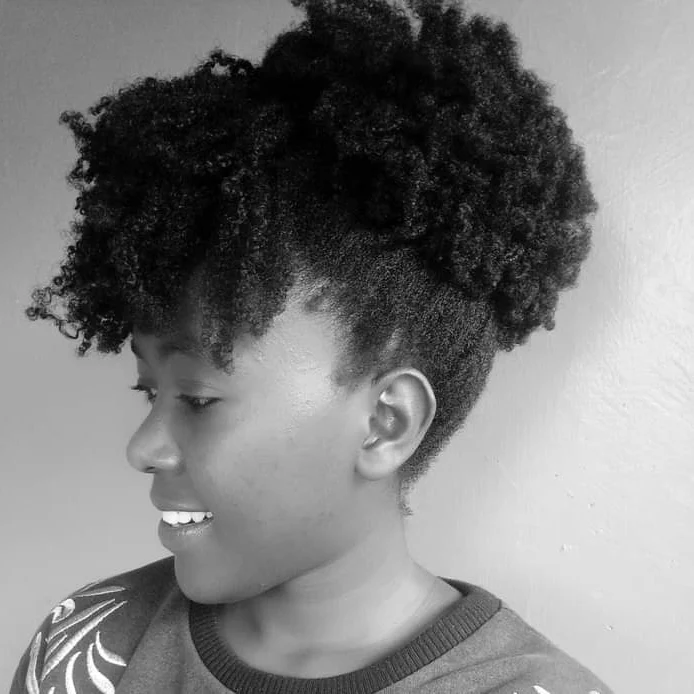
9. Genetics
Sometimes, hair loss and thinning are due to genetics. If hair thinning or hair loss runs in your family, you may be predisposed to similar issues. While you can’t change your genes, you can take steps to manage and reduce the impact of genetic hair loss.
Solution:
- Consider Hair Growth Treatments: Products like minoxidil or other over-the-counter hair growth treatments may help slow down genetic hair loss.
- Protective Styles: Using protective hairstyles can reduce breakage and keep your hair looking full even if you’re prone to genetic thinning.
- Regular Scalp Massages: Stimulating blood flow to the scalp through regular massages can encourage healthy hair growth.
10. Stress
Stress is a major factor that can cause hair loss and thinning, especially in the form of telogen effluvium. When your body undergoes physical or emotional stress, your hair may prematurely enter the resting phase, leading to excessive shedding.
Solution:
- Practice Stress Management: Incorporate relaxation techniques into your daily routine, such as meditation, yoga, or deep breathing exercises.
- Exercise Regularly: Regular physical activity can help manage stress levels, improve circulation, and promote healthy hair growth.
- Get Enough Sleep: Adequate sleep is essential for managing stress and supporting overall health, including your hair.
Dealing with hair loss and thinning can be disheartening, but understanding the root causes is the first step toward healthier, fuller hair. Whether it’s tension from hairstyles, heat damage, poor nutrition, or hormonal changes, identifying the underlying issue will allow you to tailor your hair care routine to your specific needs.
Remember, patience is key. Healthy hair growth takes time, but by making consistent changes to your routine, such as moisturizing regularly, avoiding tight hairstyles, eating a balanced diet, and limiting heat use, you can help prevent hair loss and thinning, and encourage strong, beautiful 4C hair.

